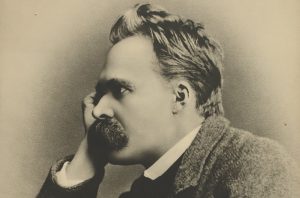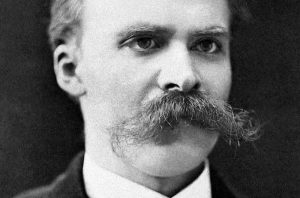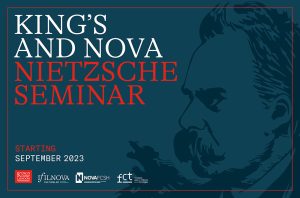The Lisbon Nietzsche Group (LNG, formerly Nietzsche International Lab/NIL) is a research group dedicated to the study of the works and thought of Friedrich Nietzsche, the culture of his time, and the relevance of his legacy for our own time. The LNG was originally created by João Constâncio, Maria João Mayer Branco, and Katia Hay in 2009. Since then, it has obtained funding for 11 post-doc fellowships funded by the FCT, 7 researcher fellowships, 5 PhD fellowships, as well as funding for three FCT research projects, plus funding for a research project supported by the FCT and the German DAAD. The first project was called “Nietzsche and the Contemporary Debate on the Self” (2011-2014); the second “The Plurality of the Subject in Nietzsche and Pessoa” (2015-2015); the third “The Crisis of Nihilism — Nietzsche’s Critique of Values and its Reception in German Literature and Aesthetics” (2017 e 2019); the fourth “Nietzsche on Nihilism and the Value of Art – Fragments (2018-2022)”. The LNG is currently coordinated by Pietro Gori.
From the beginning, the Lisbon Nietzsche Group has established protocols of collaboration with several of the most important Nietzsche research centers in Europe, including, for instance, King’s College London (starting from 2023, the “London Nietzsche Seminar” has become the “King’s and Nova Nietzsche Seminar”), Seminario Permanente Nietzscheano (Istituto Italiano di Studi Germanici, Italy), Internationale Nietzscheforschungsgruppe Stuttgart (Germany), Association HyperNietzsche and Equipe Nietzsche (ITEM-ENS/CNRS, France), Grupo de Estudos Nietzsche (Brasil), the research group CLEPO (Cuerpo, lenguaje y poder: lecturas contemporáneas a partir de Nietzsche), Complutense University of Madrid, and Red Iberoamericana de Estudios Nietzsche (RIEN). All LNG members actively collaborate with these research groups, of which they are also members, regularly attending their seminars and meetings or even sitting on their scientific committees.
The LNG has strong international recognition, and was recognised as an international pole of excellence in the field of philosophical studies by the latest IFILNOVA evaluation panel. The group’s publications include more than a dozen books in prestigious publishing houses such as Bloomsbury, Palgrave and Walter de Gruyter, as well as 50 articles indexed in the best journals specialising in Nietzschean studies (including the Nietzsche-Studien) and dozens more in collections of essays and conference proceedings.
The LNG recently published an open-access Introduction to Nietzsche (ed. P. Gori) which is available here.
The group has a Facebook page where it regularly posts information about events, courses, calls for papers, new editions, etc.
Referential editions of Nietzsche’s Writings:
- Critical Standard Edition published by Walter DeGruyter (KGW/KGB, KSA/KSB): Nietzsche Online (Access provided by IFILNOVA on campus; for remote access, see here);
- Open-access Digital Critical Edition (eKGWB): Nietzschesource.





